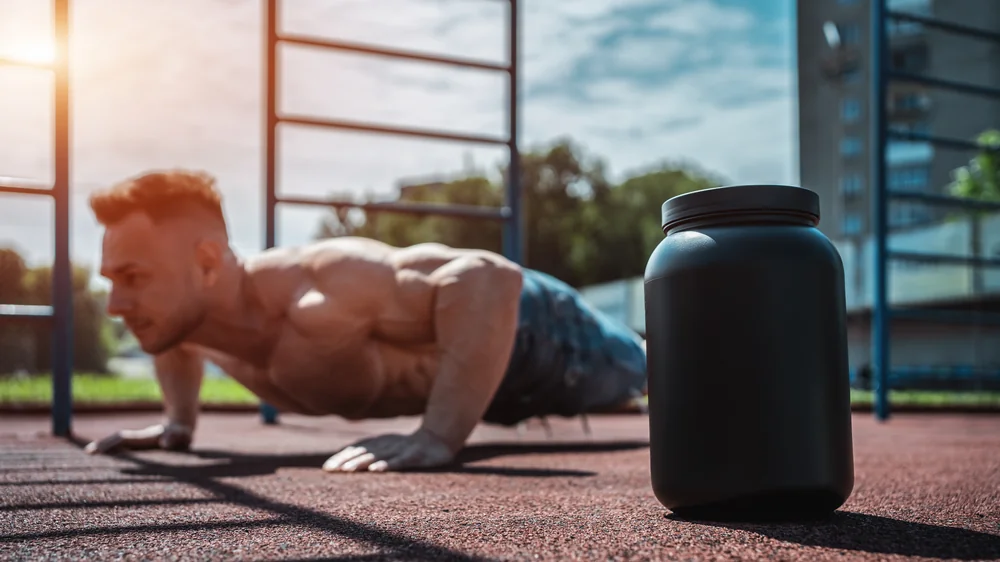In a new systematic review, researchers have shown that combining some dietary supplements and exercise might be beneficial for people over the age of 60 [1].
A double-edged sword
Chronic low-level inflammation accompanies many hereditary and age-associated diseases. Inflammation also plays an important role in ‘healthy’ aging, so it was recently acknowledged as another hallmark of aging by that paper’s original authors.
Inflammaging (inflammation + aging) is associated with fatigue – one of the most commonly reported symptoms among older people. While fatigue was shown to lead to physical inactivity in this population [2], exercising might actually be beneficial for reducing inflammation and, subsequently, fatigue.
At the same time, vigorous long-duration exercise sessions might promote inflammation [3]. Ultimately, the effect of exercise on an individual’s inflammatory profile seems to depend on several factors, including exercise intensity, duration, and type of exercise as well as characteristics such as sex, age, health status, and, possibly, nutrition.
In this study, the researchers sought to explore if a combination of dietary supplementation and physical activity can reduce inflammation in people over the age of 60. The team analyzed the results of 11 studies that satisfied pre-defined criteria for eligibility.
Exercise-supplementation synergy
The 11 randomized controlled studies differed in design, but most included healthy men and women, and all compared exercise + supplementation groups to control groups.
Six studies evaluated protein or amino acid supplements (mostly leucine). Two studies included omega-3 supplements, one study focused on vitamin C supplements, and vitamin D was used either as a sole supplement or in conjunction with amino acids and whey protein.
The studies also differed by the implemented exercise regimes. Most studies incorporated resistance training, two studies focused on combined exercise (e.g. aerobic + stabilization), and one included only Nordic walking. In general, participants exercised 2-3 times a week. Study durations varied from 4 weeks to 24 weeks.
The analysis showed that in 6 of the 11 studies, there was a reduction in inflammatory markers such as IL-6, TNF-α, and C-reactive protein after exercise combined with dietary supplementation. The researchers conclude that in addition to the beneficial effect of exercise, the anti-inflammatory properties of plant-derived proteins and such micronutrients as vitamins C and D might be responsible for the suppression of inflammation in these studies.
Nonetheless, the results obtained in this systematic review are rather ambiguous. Most often than not, not all inflammation markers were suppressed by the interventions in the analyzed studies. In addition, it is still unclear what the ideal combination of exercise and dietary supplementation is.
Abstract excerpt
After applying eligibility criteria and risk-of-bias assessment, 11 studies were included in the systematic review. In total, 638 participants were analyzed and the main supplements evaluated were amino acid or protein supplementation from different sources. In the counterpart, the exercise applied in the evaluations included strengthening exercises or aerobic training. The interventions had a range of duration between 4 and 24 weeks, and the effects on inflammation markers in most of the studies showed a decrease in pro-inflammatory cytokines and non- or slightly significant change in anti-inflammatory cytokines. However, these results suggest that exercise and supplement interventions can contribute to diminishing the inflammation process in the elderly. We can also conclude that further well-designed randomized controlled trials are needed to confirm the possible synergistic effects of exercise and food supplementation against inflammation in the elderly due to the limited studies that currently exist.
Conclusion
This study revealed some evidence of the synergistic anti-inflammatory effect of exercise combined with dietary supplementation, including protein, in older people. The significance of this result is not clear, though, and the optimal exercise and nutrition regime likely depends on the person and should be developed with individual parameters in mind.
Literature
[1] Hernández-Lepe MA, Ortiz-Ortiz M, Hernández-Ontiveros DA, Mejía-Rangel MJ. Inflammatory Profile of Older Adults in Response to Physical Activity and Diet Supplementation: A Systematic Review. Int J Environ Res Public Health 2023; 20: 4111.
[2] Egerton T, Chastin SFM, Stensvold D, Helbostad JL. Fatigue May Contribute to Reduced Physical Activity Among Older People: An Observational Study. J Gerontol A Biol Sci Med Sci 2016; 71: 670–676.
[3] Cerqueira É, Marinho DA, Neiva HP, Lourenço O. Inflammatory Effects of High and Moderate Intensity Exercise-A Systematic Review. Front Physiol 2019; 10: 1550.





